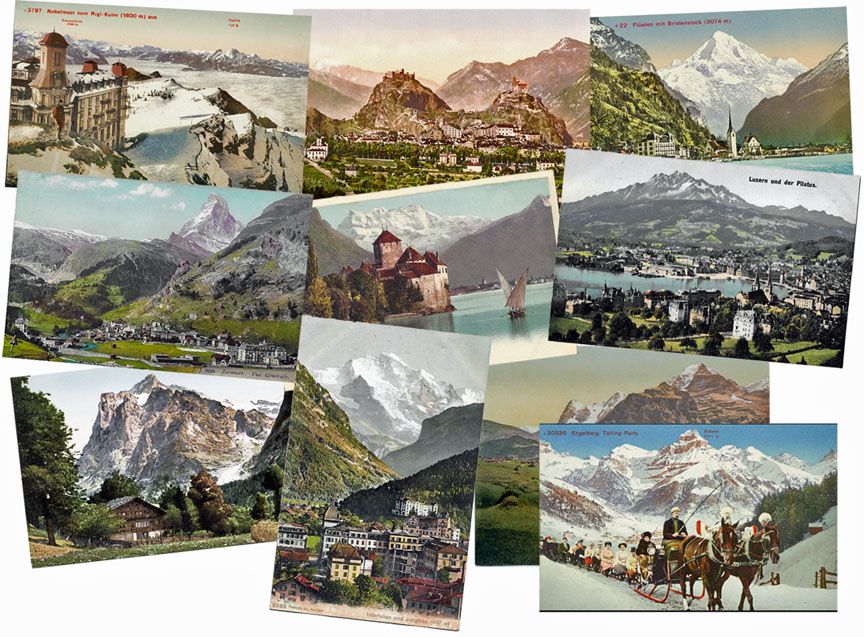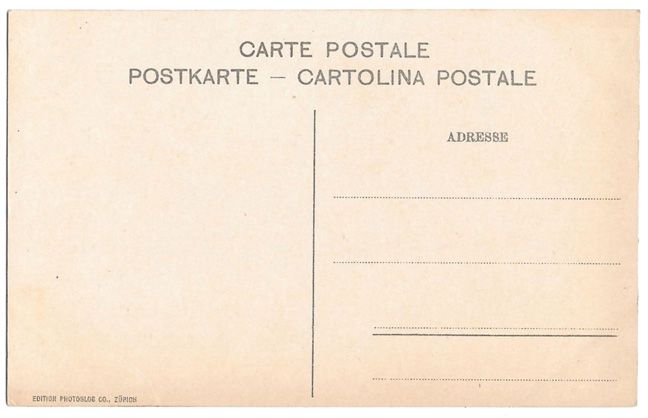45. A New Cover
The six carried on a rambling conversation through the remainder of lunch, touching on many topics. As Henry shared observations from his visits to Château-d'Œx, David asked, "How had you decided on this location?"
"We had assembled a long list of resorts, but only a few offered the isolation, the clean, dry air and the accommodations we required. The deciding factor was that sufficient hotels there were willing to reduce prices to meet our demands." He shrugged. "And as tourism continues in its deep slump, those who were inflexible now regret their decisions."
"Could I get the list of the resorts?"
"Yes, certainly, David." Henry cocked his head. "But please, appease my curiosity. Why would you want this?"
"I need to find other covers for the men. Some may have related the presence of fuse salesmen to the explosions." He shrugged. "Your mention of the resorts – and their lack of business – prompted the thought of the men acting as agents promoting tourism. This might be a fine guise to explain their activities, particularly away from the industrial areas."
"But, would it have any effect? Would any Germans be able to cross the border? That's the main problem now with tourism." Henry raised a finger. "That and being able to afford it."
"It matters not if we succeed in selling anything. What matters is a good cover. Enticing brochures depicting peaceful settings would add to the emotional impact as the men discuss the reality of the war."
Edith nodded. "I like this. A fine dichotomy between the horrors they now experience and what is possible with peace. Reinforce the message."
"I would think there's a government department, or at least, a committee here for the promotion of tourism. It's too important a sector ..." David paused and grimaced. "Or it had been before the war disrupted it. Anyway, an office that would have brochures and leaflets on –"
"Postcards." John interrupted, looking up from his plate. "They've been one of the best promotions for the attractions of Switzerland for two decades now. Ever since inexpensive colour printing was invented, they've flooded abroad, sent home by enthusiastic travellers."
David nodded. "Yes, of course. I had sent one from Schaffhausen last year to let my family know I was alive and safe after Ypres."
"I became fascinated by the variety several years ago, and I've gathered a rather large collection of them." John laid down his cutlery, wiped his fingers and took an envelope from his breast pocket. "I'm meeting later with a gentleman to trade some of my duplicates." He selected a few, and as he laid them on the tablecloth in front of David, he continued, "The most beautiful are usually the most common."

"A fine example of basic market economics. The demand driving their supply." David examined the cards, nodding. "These are all beautiful."
"Exactly! The printers continued producing the ones which sold best, following the market. There are many thousands of different cards, but only a few hundred of those are common. The last report of sales, 1913, showed over a hundred and ten million were sold in Switzerland."
David shook his head. "Million?"
"Yes, a hundred and ten of them." John nodded. "The growth had been strong and steeply rising until the war. Now, the printers, distributors and shops are all stuck with unsold stock."
"And likely available at near cost." He examined the range of cards again. "These are what we need to convey the beauty. The serenity."
"Some of these are no longer in print, nor available in the shops. But hundreds of designs still are."
"And at the printers." David bobbed his head as he continued. "Most would have large unsold stock. The demand didn't slowly dwindle; it suddenly collapsed."
John flipped one of the cards and pointed. "The printers' names are on the backs, and this one, Photoglob in Zürich, is by far the largest. They invented the colour process."

"Convenient." He turned to Maria. "We can arrange to meet with them when we visit your grandparents next week."
"Next week? I have exams and practicals next week."
"But you're finished on Wednesday. I need to speak with Michael about finding some old Chateau d'Yquem, and I had thought it would be a fine opportunity for you to celebrate the end of your studies."
Maria sighed. "I haven't even thought about what I'll do when they're finished. A whole two and a half weeks until the research project begins, and nothing to fill it. It'll feel so strange."
David patted her hand. "I anticipate London will approve this idea, so there'll be plenty to do. Your insights on what motivates and incites women will be of great value when we reorient and train the men in their new roles."
"At Sonnenhang?" Maria's face lit up. "I would love that."
The group carried on a lively discussion until they finished their lunch, much of it concerning ideas to help subvert the thinking of German women. When they finally rose from the table, David stepped beside the Ambassador and asked, "May we speak in private, Sir?"
"Yes, certainly." He motioned to the corner.
"It might be better in your office, Sir. It's long, complex and not for all ears. Though Henry and John should know about this, as well."
Evelyn pursed his lips, then he turned to his wife and shrugged. "Duty calls, Edith. I shan't be long."
David caught Maria's eyes and tilted his head toward the withdrawing room. She nodded and took Edith's arm, saying, "While the men are busy, we can continue examining what might sway the women's thinking."
The Ambassador led the other three into his office, and when they had settled around the table in the corner, David related his experiences with the interrogation. After confirming that he should mend with nothing worse than scars, he continued, "I was told that ratting adds only a temporary reprieve. When the interrogator determines that all the details have been extracted, they chop off whatever remains."
Henry winced and nodded. "And they're left to bleed to death."
"No, they're attended by a surgeon who closes the wounds, enabling most to survive and be used for medical experimentation and training. The interrogation rooms are located in hospitals."
"I had read a few reports, but none with any mention of the hospitals nor the systematisation. Is this new?"
"Nor had I seen it mentioned." David shrugged. "But the locations and the system have existed for at least four months."
"Upon what do you base this?"
"I interrogated my interrogator." David chuckled. "I sensed he would be vulnerable after his error, and the more I probed, the more his naiveté showed. I gathered far more than sufficient information to present to the Adjutant an extremely negative image of not only him but also of his supervisors. Then I used this to gain more details from the Adjutant."
"Ballsy move." The Ambassador raised a hand to his mouth and shook his head. "Not the best way to express that, is it?"
David laughed. "It's fine. They had already been on the block, and the Adjutant believed they had been smashed. Informing him they hadn't is how I learnt about the standard progression and many of the other details."
"And by probing, you risked putting them back on the block."
"I saw no risk, Sir. My position had become near-invulnerable by that time because of their embarrassment about the error, particularly in light of my relationship with Prinz Wilhelm. It might have seemed strange to them if I weren't indignant and inquisitive."
The Ambassador nodded. "Still gutsy. Reinforces my commitment to never play Baccarat with you."
"It's vital to always assess the odds." David grinned, and then he nodded toward the door. "I must go up and begin drafting a proposal to G while the details from our discussions are still fresh."
"And a report about the interrogation."
"I wrote that yesterday afternoon in the hotel, Sir, soon after I arrived, and while the terror of it was still with me. I'll likely need to tame it down a bit."
Bạn đang đọc truyện trên: AzTruyen.Top